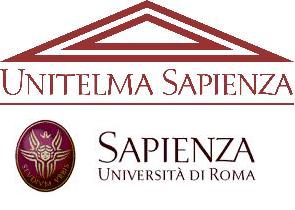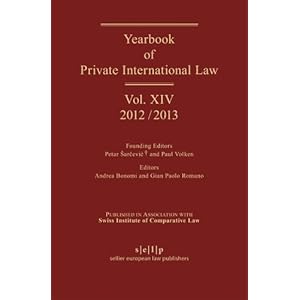Call for Papers: Boundaries of European Private International Law
Boundaries of European Private International Law
Lyon – Barcelone – Louvain-la-Neuve
Jean Monnet Life Long Learning Programme
The European Union is undertaking a vast, complex process to standardise the rules of private international law among the Member States (rules on conflict of law, jurisdiction, recognition and enforcement of foreign court orders). For legal experts in this discipline, who have historically been trained in private international law primarily on a national basis, and secondarily on an international basis, the changes will be considerable. The adoption of a large number of European regulations and the overhaul of the existing regulations also represent challenges to the training and education of legal experts.
Against this highly changeable backdrop, the Research Centre of Private International Law (CREDIP), at the University Jean Moulin – Lyon 3, has commenced a European research program on the theme of the boundaries of European private international law. Where does European private international law begin and end?
A demonstration of the existence of European private international law is no longer necessary. However, the question of the place of European private international law in a more globalised legal order, i.e. the difficult but crucial theme of reconciling European private international law to the legal frameworks that preceded it at national, international and European level, has been largely neglected to date.
The aim of this research program is to remedy this situation by holding discussions in different locations in Europe (Lyon – Barcelona – Louvain), bringing together European specialists in private international law or European law and doctoral or post-doctoral students.
Four main themes will be tackled:
1. Reconciling European private international law with (substantial and procedural) national and international frameworks;
2. Reconciling European private international law with private international law applicable in relationships with countries outside the EU;
3. Reconciling European private international law with other European law frameworks (internal market: free circulation of goods and reconciliation of private national legislations) and other areas of freedom security and justice (immigration and cooperation in criminal matters);
4. Reconciling the various European instruments of private international law.
Themes 1 and 2 will be the subject of an international workshop at the Autonomous University of Barcelona (March/April 2014).
Themes 3 and 4 will be the subject of an international workshop at the Catholic University of Louvain (May/June 2014).
If you are interested in one of these four themes, please submit your proposal before 1rst December 2013 (a 5-line summary, your title and presentation of 1-2 pages in Word format) and send it to credip@univ-lyon3.fr. Please also attach a CV and letter of recommendation from your thesis director or your research centre director.
The papers will be published in English, French or Spanish in one volume by Editions Bruylant/Larcier. During the workshops, the presentations will be made in a working language understood by everyone. The discussion will continue in several languages, so that everyone can express themselves in their mother tongue. During the discussion, where necessary, participants will provide a translation from Spanish or French into English.
For candidates whose papers are accepted, all the costs of participating in the workshops related to their theme will be covered.
Scientific Committee : Rafael ARENAS GARCÍA, Catedrático, Universitat Autònoma de Barcelona, España – Louis D’AVOUT, Professeur de droit, Université Panthéon-Assas Paris II, France – Jean-Sylvestre BERGÉ, Professeur de droit, Université Jean Moulin Lyon 3, France – Christine BIDAUD-GARON, Maître de conférences HDR, Université Jean Moulin Lyon 3, France – Blandine de CLAVIÈRE, Maître de conférences en droit, Université Jean Moulin Lyon 3, France – Pedro A. DE MIGUEL ASENSIO, Catedrático, Université Complutense de Madrid, España – Alain DEVERS, Maître de conférences HDR en droit, Université Jean Moulin Lyon 3, France – Marc FALLON, Professeur de droit, Université catholique de Louvain, Louvain-la-Neuve, Belgique – José Carlos FERNÁNDEZ ROZAS, Catedrático, Universidad Complutense de Madrid, España – Éric FONGARO, Maître de conférences en droit, Université Montesquieu Bordeaux IV, France – Stéphanie FRANCQ, Professeur de droit, Université catholique de Louvain, Louvain-la-Neuve, Belgique – Hugues FULCHIRON, Professeur de droit, Université Jean Moulin Lyon 3, France – Estelle GALLANT-BUSNEL, Maître de conférences HDR en droit, Université Paris 1, France – Miguel GARDEÑES Santiago, Profesor Titular, Universitat Autònoma de Barcelona, España – Hélène Gaudemet-tallon, Professeur de droit, Université Panthéon-Assas Paris II, France – Patrick KINSCH, Professeur de droit invité, Université du Luxembourg – Malik LAAZOUZI, Professeur de droit, Université de Saint-Étienne, France – Paul LAGARDE, Professeur de droit, Université Panthéon-Sorbonne – Paris I, France – Cyril NOURISSAT, Professeur de droit, Université Jean Moulin Lyon 3, France – Étienne PATAUT, Professeur de droit, Université Panthéon-Sorbonne – Paris I, France – Sylvaine POILLOT PERUZZETTO, Professeur de droit, Université de Toulouse 1 Capitole, France – Gian Paolo ROMANO, Professeur de droit, Université de Lausanne, Suisse – Sixto SÁnchez Lorenzo, Catedrática, Universidad de Granada, España – Laurence SINOPOLI, Maître de conférences HDR en droit, Université Paris Ouest Nanterre, France – La Défense, France – Edouard TREPPOZ, Professeur de droit, Université Jean Moulin Lyon 3, France – Patrick WAUTELET, Professeur de droit, Université de Liège, Belgique – Blanca VILÀ COSTA, Catedrática, Université autonome de Barcelone, , España.
Scientific Coordination : Jean-Sylvestre Bergé, Stéphanie Francq et Miguel Gardeñes Santiago
Administrative Manager : Véronique Gervasoni, Équipe de Droit International, Européen et Comparé (EA n° 4185).

 In 2013, the European Law Institute (ELI) and UNIDROIT agreed to work together in order to adapt the 2004 Principles of Transnational Civil Procedure developed by the American Law Institue and UNIDROIT from a European perspective and develop European Rules of Civil Procedure. This project will take the 2004 Principles as its starting point and will develop them in light of: i) the European Convention on Human Rights and the Charter of Fundamental Rights of the European Union; ii) the wider acquis of binding EU law; iii) the common traditions in European countries; iv) the Storme Commission’s work; and v) other pertinent European sources.
In 2013, the European Law Institute (ELI) and UNIDROIT agreed to work together in order to adapt the 2004 Principles of Transnational Civil Procedure developed by the American Law Institue and UNIDROIT from a European perspective and develop European Rules of Civil Procedure. This project will take the 2004 Principles as its starting point and will develop them in light of: i) the European Convention on Human Rights and the Charter of Fundamental Rights of the European Union; ii) the wider acquis of binding EU law; iii) the common traditions in European countries; iv) the Storme Commission’s work; and v) other pertinent European sources. The 1st exploratory workshop, to be held in Vienna on 18 and 19 October 2013, aims at an initial analysis of a series of different topics, ranging from due notice of proceedings to enforcement, with a view to identifying the most promising issues and the most appropriate methodological approach for the project. The event will be divided into a public conference, scheduled for 18 October, and an in-depth workshop for invited participants following the public discussion, which should lay the foundations for the elaboration of the ultimate project design by the ELI and UNIDROIT.
The 1st exploratory workshop, to be held in Vienna on 18 and 19 October 2013, aims at an initial analysis of a series of different topics, ranging from due notice of proceedings to enforcement, with a view to identifying the most promising issues and the most appropriate methodological approach for the project. The event will be divided into a public conference, scheduled for 18 October, and an in-depth workshop for invited participants following the public discussion, which should lay the foundations for the elaboration of the ultimate project design by the ELI and UNIDROIT. The latest volume of the
The latest volume of the